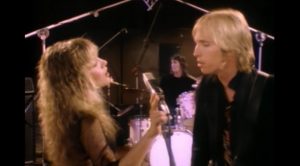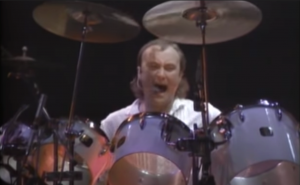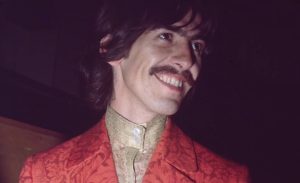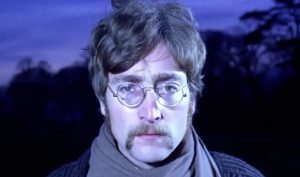10 Proven Roger Daltrey Songs That You’ll Make You An Instant Fan
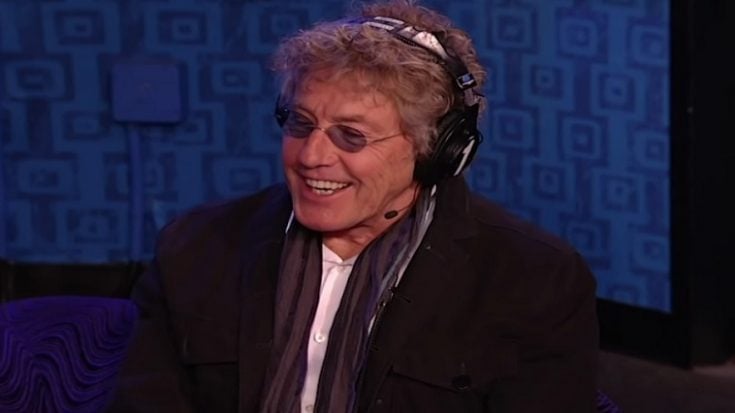
Roger Daltrey - The Howard Stern Show / YouTube
While the legendary voice of Roger Daltrey is synonymous with The Who, his solo career boasts an impressive eight albums and countless gems waiting to be discovered. Though The Who’s legacy as one of rock’s greatest bands is undeniable, this list dives deep into the artist’s catalog, showcasing Roger’s captivating and diverse solo works.
This exploration is especially important considering the band’s evolution. While The Who’s original lineup, fueled by the distinct personalities of Pete Townshend, John Entwistle, Keith Moon, and Daltrey, achieved rock royalty status, their journey wasn’t without its challenges.
Their original run ended tragically with Keith Moon’s passing in 1979, and though the band continued with a new drummer, it marked a significant shift.
This list serves as evidence of Roger’s artistic growth beyond The Who. Just as legendary frontmen like Mick Jagger and Ann Wilson ventured into solo territory, Roger embarked on this path, enriching his musical tapestry with a multitude of influences and expressions, independent of The Who’s iconic sound.
10. “Avenging Annie” (1977)
Our exploration of Roger Daltrey’s solo brilliance begins with a song that embodies the power of his interpretations – “Avenging Annie.” This captivating rock ballad, penned by Andy Pratt, possesses a timeless quality that has sadly remained underappreciated throughout history. While it never achieved the widespread recognition it deserved, the song’s inherent strength shines through in Daltrey’s masterful rendition.
Released in 1977 on his album One of the Boys, “Avenging Annie” is a rousing testament to Daltrey’s ability to elevate any song he touches. His powerful vocals breathe new life into the composition, transforming it from a hidden gem waiting to be discovered into a powerful and emotive experience.
Daltrey’s performance not only showcases his unmatched vocal prowess but also highlights the song’s undeniable potential, leaving you wondering why it wasn’t a chart-topping sensation.
9. “Thinking” (1973)
Venturing further into the landscape of Roger Daltrey’s solo career, we encounter the gentle embrace of “Thinking”. This acoustic guitar-driven song, released in 1973 on the album Daltrey, offers a refreshing departure from the rock anthems he’s known for. While subtle hints of country music and a touch of The Beatles’ influence weave themselves into the melody, the song ultimately carves its own path.
While not a chart-topping success, peaking at number sixty-one on the UK Music Charts, “Thinking” showcases a different side of Daltrey’s artistry. Composed by David Courtney and Leo Sayer, the song allows his vocals to shine with a softer, more introspective quality.
It’s a simple display of Daltrey’s versatility, demonstrating his ability to captivate audiences with both powerful rock performances and intimate, acoustic ballads.
8. “Without Your Love” (1980)
Taking the number eight spot on our list is the achingly beautiful ballad, “Without Your Love”. Released in 1980 on the soundtrack album for the film McVicar, the song stands out for its timeless quality.
Despite its release date, the music carries a distinct 1970s sound, perfectly complementing the film’s setting. This sonic nostalgia might be attributed to the song’s composer, Billy Nicholls, whose own musical style thrived in the early to mid-seventies.
“Without Your Love” resonates deeply with its heartfelt lyrics and Daltrey’s emotive vocals. The song is about the profound emptiness experienced in the absence of love, painting a picture of yearning and longing.
7. “There Is Love” (1973)
Nestled at number seven on our list is a hidden gem – “There Is Love”, a song that may have eluded even the most dedicated Roger Daltrey fans. Unlike its counterparts, it never graced any of his solo albums, instead appearing as the B-side to “Thinking” on the 1973 Daltrey release.
This track offers a delightful journey through contrasting musical landscapes. It begins with a classic, stripped-down arrangement – just Roger’s powerful vocals interwoven with the gentle melody of a solo piano. But the true magic unfolds as the song transitions into a full-fledged gospel arrangement, complete with soaring backing vocals and a driving rhythm section.
However, the cherry on top of this sonic delight is the presence of legendary guitarist Jimmy Page, adding his signature touch to the song. The collaboration with the legendary Led Zeppelin guitar maestro is a collector’s dream, offering a unique glimpse into the creative synergy between two rock icons.
6. “Under A Raging Moon” (1986)
Securing the number six spot on our list is the emotionally charged “Under A Raging Moon”. This 1986 track, the title cut from Daltrey’s album of the same name, serves as a heartfelt tribute to his late bandmate, Keith Moon, the legendary drummer of The Who.
The song’s opening deliberately evokes classic Who anthems like “Won’t Get Fooled Again” and “Baba O’Reilly” with its bouncing eighth-note keyboard pattern. This intentional choice instantly creates a familiar yet distinct atmosphere, signifying both a connection to the band’s legacy and a unique space for Daltrey’s personal expression.
While “Under A Raging Moon” may not tread the same bombastic path as its Who counterparts, it pulsates with raw passion and infectious energy. The song’s strength is further amplified by the powerful drumming performances from renowned artists like Stewart Copeland (The Police), Carl Palmer (Emerson, Lake & Palmer), and Martin Chambers (The Pretenders), each adding their distinctive touch to solidify this track as a powerful and moving tribute.
5. “Giving It All Away” (1973)
Marking the halfway point on our list is the aptly titled “Giving It All Away”, a song that embodies the passion and drive of Roger Daltrey’s solo career. Released in 1973 as the lead single from his debut solo album, Daltrey, the song became a defining moment for his journey beyond The Who.
Composed by Leo Sayer and David Courtney, “Giving It All Away” is a powerful rock ballad that showcases Daltrey’s trademark vocals in all their glory. The lyrics speak of determination and liberation, resonating with listeners who yearn to break free from societal constraints and pursue their own paths.
It’s a fitting anthem for Daltrey’s solo venture, establishing his ability to connect with audiences beyond the iconic sound of The Who. The song’s success was undeniable, reaching number five on the UK Music Charts. This commercial achievement solidified Daltrey’s position as a solo artist to be reckoned with, paving the way for a diverse and acclaimed solo discography.
4. “Walking in My Sleep” (1984)
Our countdown continues with the infectious groove of “Walking in My Sleep”, which takes the fourth spot on our list. Released in 1984 as the lead single from his album Parting Should Be Painless.
Written by Leslie Adey and Jack Green, the single achieved notable success, particularly on Billboard‘s Mainstream Rock Charts where it peaked at number 4. It also charted on the Netherlands’ MegaCharts, UK Singles Charts, US Singles Charts, and even reached number 19 on the Austrian Singles Charts.
The song’s music video featured Ian Dury, the lead singer of the British band Ian Dury and the Blockheads, further adding to its cultural impact.
3. “Parting Would Be Painless” (1984)
Holding the third place on our list is the intriguing “Parting Would Be Painless”, a song that defies easy categorization. Released in 1984 on the album of almost the same name, Parting Should Be Painless, it marks a significant departure from anything Daltrey had previously released, showcasing his willingness to experiment and explore uncharted territories.
The song’s unique soundscape evokes the atmosphere of classic film noir movies. The moody instrumentation, featuring atmospheric keyboards and a driving bassline, creates a sense of suspense and intrigue. And it’s not a surprise, since this is a cover of a 1981 song by British pop singer Kit Hain.
While this stylistic departure may have alienated some fans accustomed to the high-octane rock of The Who, “Parting Would Be Painless” remains a fascinating and commendable entry in Daltrey’s discography.
2. “Free Me” (1980)
Taking the runner-up spot on our list is the exhilarating “Free Me”, a song that ignites the spirit of classic The Who. Released in 1980 as the lead single from the soundtrack album McVicar, the track channels the energy and power of Daltrey’s work with his iconic band.
Composed by the legendary Russ Ballard, known for crafting timeless hits for bands like Three Dog Night and Santana, “Free Me” pulsates with a familiar yet electrifying vibe. The song’s driving rhythm section, soaring guitars, and powerful vocals evoke memories of albums like “Who’s Next”, “Tommy”, and “Quadrophenia”, reminding listeners of the raw energy that defined Daltrey’s earlier works.
Daltrey shines on this track, unleashing his full vocal prowess. He effortlessly navigates challenging melodies, hitting incredibly high notes that showcase his enduring vocal power. This passionate performance serves as a testament to his ability to recapture the fire of his youth while injecting it with a fresh, contemporary edge.
1. “After The Fire” (1977)
The crown jewel of our top 10 Roger Daltrey songs list is the iconic “After the Fire”. Released in 1985 on his album Under a Raging Moon, the song not only became his highest-charting single on the US Billboard Rock Charts, peaking at number three, but also cemented its place as a timeless classic.
What truly elevates “After the Fire” to the top spot is the sheer brilliance of Daltrey’s vocal performance. He pours his heart and soul into every note, weaving a tapestry of emotions that resonates deeply with listeners. The raw power, vulnerability, and captivating storytelling present in his voice are undeniably captivating, leaving an indelible mark on anyone who hears it.
Adding further significance to this masterpiece is the fact that it was penned by Pete Townshend, his longtime collaborator and The Who bandmate. This collaboration imbues the song with a unique synergy, reflecting their shared history and mutual understanding.




